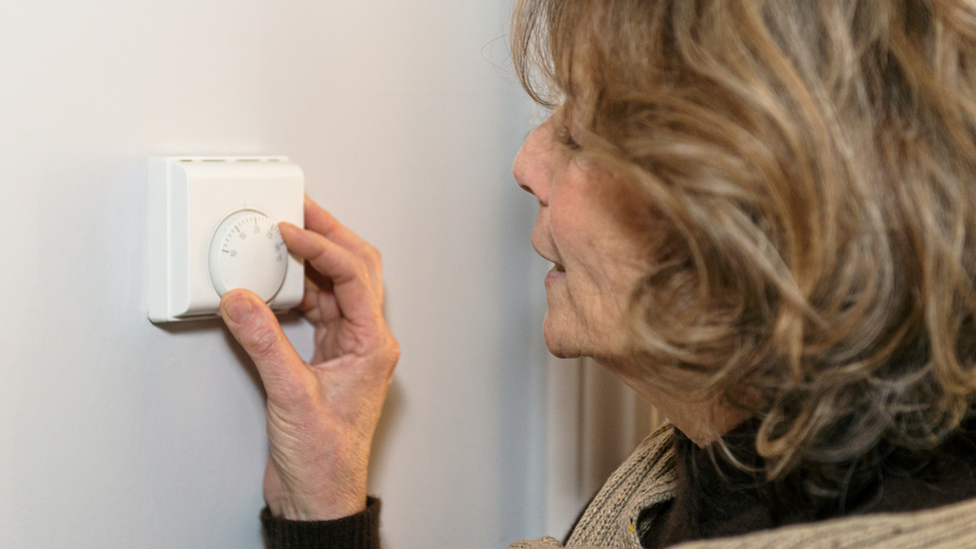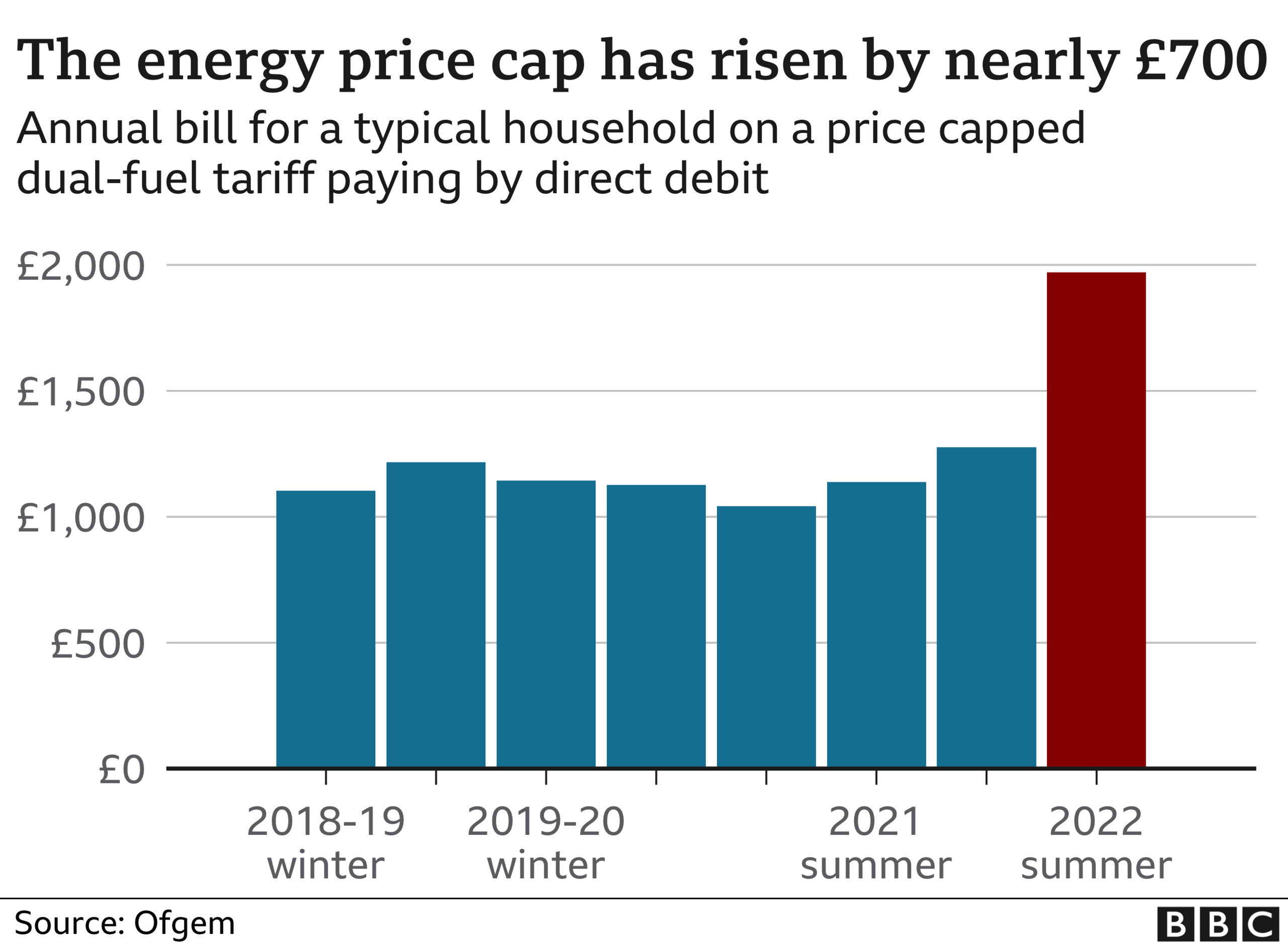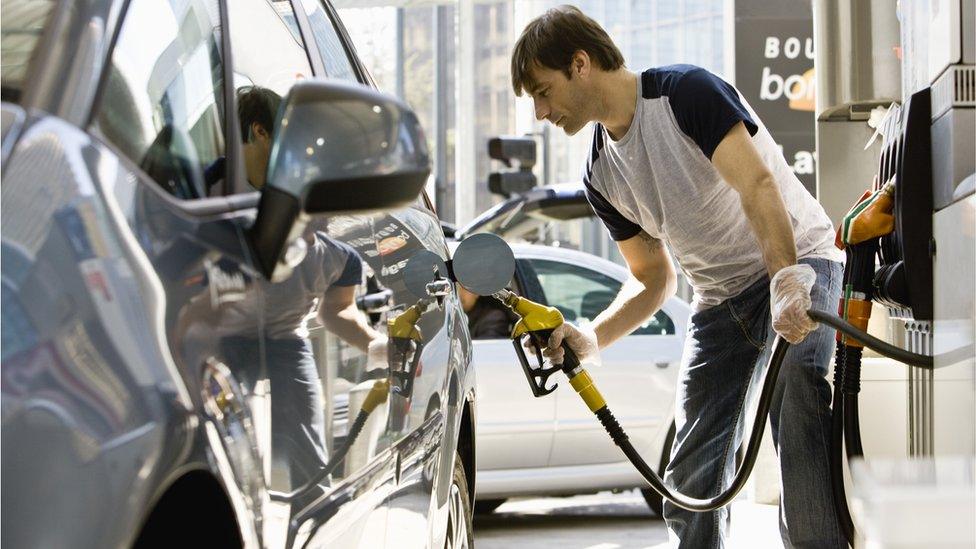Worried households cut back on energy and food
- Published
- comments

More than half of UK homes have reduced the amount of gas and electricity they use as worries about the cost of living grow, new data shows.
The Office for National Statistics (ONS), external also found that high numbers of people are spending less on food.
The rate of inflation is rising at its fastest rate in decades due to factors such as high energy prices.
The ONS said around three-quarters of households were "somewhat worried" or "very worried" about growing costs.
Wage growth is failing to keep up with inflation - the rate at which prices rise - leaving many households struggling.
Inflation reached a 40-year high of 9% in April.
In a survey covering 25 May to 5 June, the ONS said 52% of respondents said they were using less energy around the house.
The survey also found that 41% were spending less on food and "essentials".
Around 9 in 10 adults said their cost of living had risen over the past month, with food shopping, gas and electricity bills and the price of fuel the most common reasons given.
Higher manufacturing and supply costs are lifting food prices. The war in Ukraine, which is a major provider of grains and fertilizer globally, has had a major impact.
Russia, which launched an assault on Ukraine in February, is one of the world's largest oil suppliers and is facing widespread sanctions following its attack.
The ONS said 40% of those questioned said that they were cutting back on non-essential journeys in their vehicles. This week, petrol prices in the UK reached a new high, meaning it now costs £100 to fill a 55-litre car.

Meanwhile, energy bills have soared, with the average household seeing a 54% increase in April when the price cap - the maximum amount per unit suppliers can charge in England, Scotland and Wales - rose. Bills are expected to rise even further in October.
The government has announced a range of measures to help people cope with rising costs, including a £400 discount on fuel bills for all UK households in October.
More than eight million low-income households will also get an additional £650.
- Published9 June 2022

- Published9 June 2022

